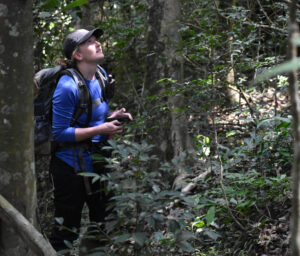Current Fellows
2025 Bruce McEwen Fellows
Sabrina Seaborn-Mederos, University of California - Davis

Sabrina is a Ph.D. candidate at the University of California, Davis, who investigates the neural and molecular mechanisms that underlie pair bonding across species. Her research integrates behavioral neuroscience, epigenetics, and comparative biology to uncover evolutionarily conserved processes that support social attachment. She has studied the elusive bonding behaviors of seahorses alongside the well-established prairie vole model, combining behavioral assays with transcriptomic analyses to identify shared gene expression signatures across taxa. As a McEwen Fellow, she will expand this work by examining how social bonding experiences influence the expression of genes related to neuronal primary cilia which are specialized signaling organelles implicated in brain plasticity, stress regulation, and cognitive aging.
Frank Raven, University of Michigan

Frank Raven is a postdoctoral researcher in the lab of Sara Aton at the University of Michigan. His project will study how these aging, sleep, and memory affect key brain circuits, focusing on cholinergic and somatostatin-positive neurons — cells that help balance brain activity but decline with age. Using advanced genetic tools in mice, he will test how altering these circuits changes memory processing in young and aging brains, and map how these networks shift over time. Ultimately, the goal is to uncover strategies that could one day protect — or even restore — memory as people grow older.
2025 Travel Fellow
Stephanie Fox, University of California - Santa Barbara
